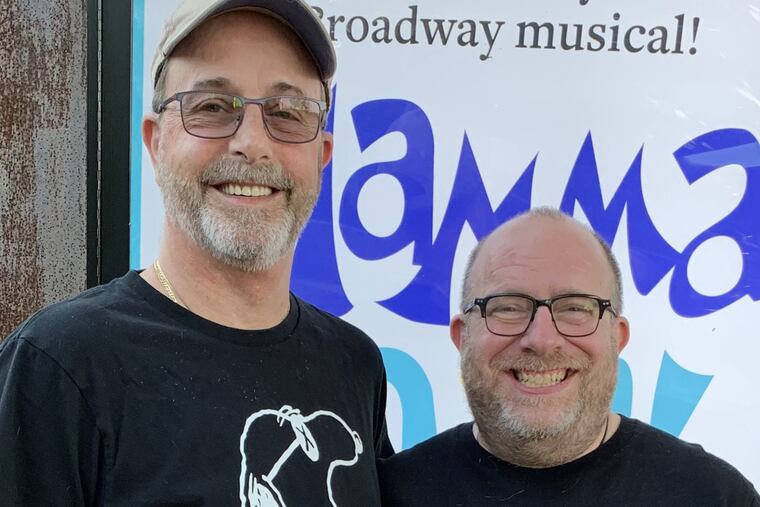I have Alzheimer’s. Here’s what happened when I traveled on SEPTA.
It was the train that had made a mistake and stopped at the wrong station, I concluded. I stood in front of the Regional Rail map in Trenton, growing more confused and anxious by the second.

A few weeks ago, I arrived at Jefferson Station in Center City on a Tuesday afternoon, feeling really good about myself.
I had just spent a few hours at the Delaware Valley Chapter of the Alzheimer’s Association, and felt inspired about my ability to contribute to its important work by drawing on my skills in journalism and public relations.
The association’s mission is deeply personal to me. Three years ago, I was diagnosed with early-onset Alzheimer’s. I’m now 58 years old, retired and on Social Security disability. This is not the way I had planned to spend my late 50s, but most days I feel pretty good.
I was proud that I had traveled on my own from Yardley via SEPTA Regional Rail. But I know how I can become overwhelmed by new places.
That’s why, as I was leaving Philadelphia, I immediately asked a friendly young SEPTA employee wearing a “how can I help you” vest when the next train would leave for Yardley. He called a colleague over, she checked the departure board and said that my train would be leaving in just a few minutes.
I rushed down to the track and hopped onto the waiting train.
I quickly buried myself in text messages, emails, and my Facebook feed. There was a baby crying a few seats ahead of me, so I put on my headphones and turned up the music.
Suddenly I heard the conductor call out Trenton as the next station. I must have missed Yardley, I thought. Annoying but no crisis.
I got off in Trenton, went to a ticket agent and asked about the next train to Yardley. Twenty minutes, she said.
When the train pulled up and I asked the conductor if it stopped in Yardley. He looked at me as though I had three heads. The only way to get to Yardley, he impatiently informed me, was to go back to Philadelphia and take another train line.
I backed away rather than getting on his train.
You’re probably thinking I simply got bad information at Jefferson Station and hopped onto the wrong train. But that’s not what my damaged brain told me.
It was the train that had made a mistake and stopped at the wrong station, I concluded. I stood in front of the Regional Rail map in Trenton, growing more confused and anxious by the second. How could I be in Trenton when my train should have stopped at West Trenton?
I felt like I had landed in an alternative reality where trains hopped between lines. When I called my husband a few moments later to explain my plight, he could hear the panic in my voice. Don’t go anywhere, he said, I’m coming to pick you up.
Once again I sat down to wait and tried to figure out how that darn train got to the wrong station. I texted a friend, who replied: “I’ve gotten on wrong trains before. Don’t beat yourself up.”
Even with that clue, however, my brain just could not compute what had really happened. I went to bed absolutely certain that the train went to the wrong place.
Eventually I was struck by a moment of clarity and the realization that the train was in the right place. I was just on the wrong train.
And then the tears began to flow. I sat at my desk for a good 15 minutes, crying over the reality that Alzheimer’s is growing in my brain. Crying about what the future will mean for my capacity for thought, for loving, and ultimately for life itself.
Alzheimer’s steals so much from us before it takes our lives. It takes our memories, our identity, our ability to interact with others.
But I’m resisting Alzheimer’s with everything I’ve got. I continue to advocate and write about the disease. I’ve steadily increased my exercise and am now about 20 pounds lighter than I was at diagnosis. My blood pressure is looking better, my type 2 diabetes is almost gone, and I’m hoping to improve other biomarkers through continued weight loss and exercise.
Yes, some days it is tempting to just give up. But I’ve never been that kind of person. I’m not going quietly. I’ll keep fighting for myself, for the 5 million others in the United States living with this disease and for the future, for my nieces and nephews.
Alzheimer’s can’t be cured or treated. But it can be resisted. And that’s what I’ll be doing for as long as humanly possible.
Phil Gutis is a retired journalist who lives in New Hope.